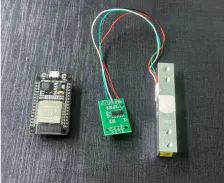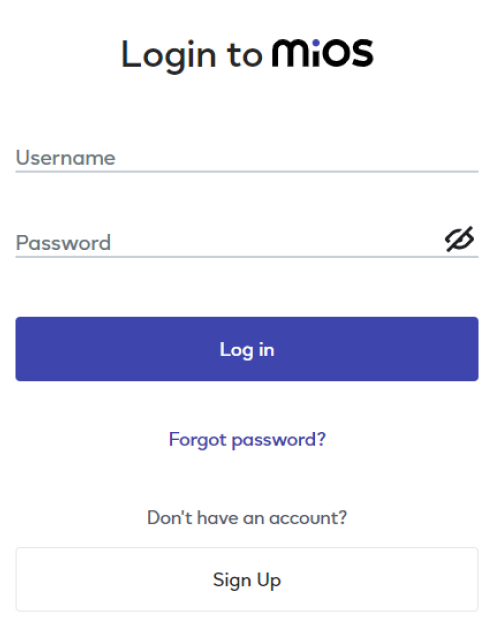
Your Precision Weight Measurement Solution!
Advanced Weight Measurement using HX711 and load cell
The EzloPi smart devices provide automation through simple, customizable use with our open-source EzloPi platform, making daily life easier and improving human-machine interactions.
Before moving into this example, it is very important to know about the device registration, provisioning and converting the ESP32 device into an EzloPi device along with knowledge of Web Flasher, MiOS Mobile Application for Android/iOS and the MiOS Web Application.
1. About this example
In this project, we will interface the HX711 amplifier with the EzloPi device to easily read load cells to measure any given weight.
The HX711 amplifier is a precision analog-to-digital converter (ADC) designed specifically for weight and load cell applications. It is widely used in various industries for measuring and monitoring weight and force. We can integrate the load cell and HX711 module into our EzloPi projects, whether it’s for any home automation task, monitoring inventory, controlling a robotic arm, or any other purpose that requires weight measurement.
2. Circuit Diagram & Interface - HX711 Wiring
The following components are required for interfacing with the EzloPi device:
- ESP32 as an EzloPi smart device.
- HX711 Amplifier with Load Cell.
The wiring diagram of ESP32 30 pin is represented as follows:


The following connections are made in order to complete the entire circuit setup.
From ESP32 to HX711 Module:
- Connect 3V3 from the ESP32 to the VCC of the module.
- Connect the GND from the ESP32 to the GND pin of the module.
- Connect D4 from the ESP32 to the SCK pin of the module.
- Connect D16 from the ESP32 to the DT pin of the module.
From Load Cell to the HX711 Module:
- Connect the Red wire of the Load cell to the E+ pin of the module.
- Connect the Black wire of the Load cell to the E-pin of the module.
- Connect the White wire of the Load cell to the A-pin of the module.
- Connect the Green wire of the Load cell to the A+ pin of the module.
3. Interfacing the HX711 Load Cell using EzloPi Web Flasher
1. Set up your device/hardware by visiting config.ezlopi.com

- Log in using the credentials that you just set earlier while signing up.

- Now, click on the Connect Device button and a pop-up window will appear.

Now, select the COM Port to which your ESP32 device is connected. In our case, the COM3 port is used.
Click Connect.

- If you are new to this and it’s your first time configuring, select Create new Device ID. Enter Wifi SSID and Wifi Password.
- In the Device Configuration, tab click on Other.

- An Other window will open for inputting the following parameters:
- Set a device name of your choosing. In our case, we set it to Load Cell.
- Set Device subtype to HX711 Load Cell.
- Tick the GPIO 1 and set it to 18.
- Similarly, Tick the GPIO 2 and set it to 19.
- Leave the GPIO 3 unchecked.
- Now Click the Apply button.
- After clicking the apply button you can see a table of your settings in the device configuration tab.
- Press the Flash Device button.
- A window will appear on the bottom right side of the screen displaying “Please press BOOT button while flashing begins.”

- Hold the BOOT button down until the next window appears on the bottom right side of the screen which says “Installation prepared. Please release the boot button now.”

- Release the BOOT button from your ESP32 when this pop-up on the bottom right window appears.

- After some time, a popup will appear saying Device Flashed Successfully! This means that your device has been set up successfully.
4. MiOS App
You can download the MIOS Android app from the Google Play Store and Apple App Store.

- After some time, a popup will appear saying Device Flashed Successfully! ! This means that your device has been set up successfully.
4. MiOS App
You can download the MIOS Android app from the Google Play Store and Apple App Store.
- After downloading the app, proceed to install the application and open it.

- Using the MIOS mobile application, create a new Ezlo Cloud account using the sign-up option. If you already have an account, you may proceed to log in.

- After successfully logging in, you will be able to see the number of controllers connected such as a lamp, fan, or any other device in the MiOS app. Tap on any controller of your desired ID:

- You will be able to see the status of your controller whether it is online or offline. Access the device dashboard, and tap the device. The following view of the dashboard will appear:

- After opening the MiOS mobile dashboard, you will be able to see the tile of your connected device. The load cell tile will reflect the weight being applied to it at that instance.
5. MiOS Web Application
- After configuring the controller with the EzloPi web flasher, head to ezlogic.mios.com

- Use the same credentials to log in that you used for configuring the controller with the web flasher.

- The load cell tile will reflect the weight or the force being applied to it at that instance on the MiOS web dashboard.

eZlopie Products A single-channel 5V relay module $00.00

eZlopie Products Momentary switch $00.00

eZlopie Products Level Shifter Module (BSS138) $00.00

eZlopie Products ESP32
$00.00

eZlopie Products AC Lamp and Holder
$00.00











